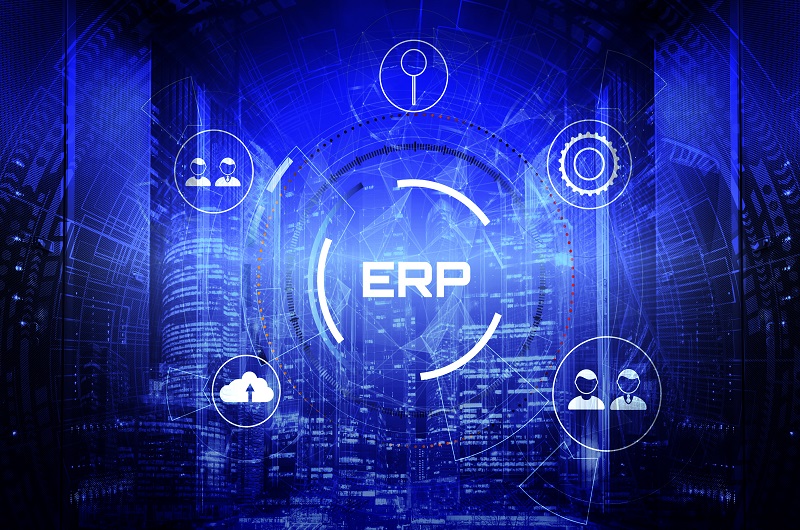Insight Paper April 5, 2022
It’s Time to Switch to a Modern ERP
Making work simpler and more efficient.
WHO NEEDS AN ERP?
Most companies benefit (or could benefit) greatly from using an Enterprise Resource Planning (ERP) system, which is a software suite of tools to manage and integrate disparate business functions, processes, and data, from finance to the supply chain. According to an article by Oracle’s NetSuite, a prominent ERP provider, “ERP implementation led to business process improvement for 95% of businesses” (NetSuite 2021). While this is itself an impressive benefit and statistic, an ERP also has the power to collect data and produce critical insights to turn them into actionable programs that drive real value for the business. If such data is properly analyzed for the purpose of driving business decisions or strategies, it could lead to real impacts on profitability and operational efficiency.
THE NEXT GENERATION OF ERP
Not all ERP systems are created equal, however. Old, legacy ERP systems have limited functionality, primarily allowing for inventory/process tracking and general documentation storage for business departments. Often, these ERPs are disjointed applications, written in outdated code, and sitting on on-premises infrastructure without the ability to scale. They also require a dedicated IT team to maintain them which becomes costly over time with a continuously low return on investment. Conversely, modern ERP systems have implemented groundbreaking features which allow their users to quickly benefit from recent technological advances.
Some of the most impactful features of modern ERP systems include:
- Customer Relationship Management (CRM) Systems
- Artificial Intelligence and Machine Learning
- Mobile Integration
- Cloud-Based Systems
CUSTOMER RELATIONSHIP MANAGEMENT (CRM) SYSTEMS
Some modern ERP providers, like Oracle, have CRM software integrated into their ERP systems. Others, like SAP, have standardized CRM modules which their ERP users could choose to integrate with their software. CRM systems track customer interactions and offer resources to marketing/sales teams to analyze and act upon this data. While ERP and CRM are both helpful to an organization separately, they become even more useful when coupled together due to data consolidation, as the risk of duplicate or inaccurate data is eliminated and business users can find all relevant data in one place and can more comprehensively assess their customer data.
ARTIFICIAL INTELLIGENCE AND MACHINE LEARNING
One of the more recent additions to modern ERP systems is artificial intelligence and machine learning capabilities. This new technology allows for increased business process automation, a decrease in manual users when applied correctly, and improved data analytics in sales and operations management by using complex computational models based on previous predictive performance. Companies have benefitted greatly from the effective use of data and the analytical insight/output resulting from the effort. Machine learning has been implemented by most modern ERP providers today, including Oracle, SAP, SYSPRO, Microsoft, and Epicor.
MOBILE INTEGRATION
While artificial intelligence and machine learning increase efficiency by decreasing the number of tasks an ERP user needs to manually complete, mobile integration with ERP systems increases efficiency by allowing the user to utilize the application from any location. Such advances reduce the amount of time employees might normally spend on travelling back and forth to stationary ERP devices. This is especially impactful in manufacturing and construction, as project managers could use mobile devices to update their ERP software while in conditions unfit for larger electronics. Almost all modern ERP developers have created mobile versions of their software, though these applications may only work on certain devices.
CLOUD-BASED SYSTEMS
The most important aspect of a modern ERP is its cloud-connectivity capabilities. Instead of keeping a physical ERP server on on-premises infrastructure, a cloud-based ERP system allows companies to use the vendor’s servers to house the platform. This eliminates the large up-front cost associated with on-premise ERP systems as well as its associated IT expenses (such as maintenance and upgrades), in exchange for scalable business costs depending on the user base and solution size, resulting in a more cost-effective long-term solution if carefully managed. Another benefit of cloud-based ERPs is their general ease of initial deployment. Although implementing ERPs can be a challenge, deciding to use an ERP with industry standards already developed and installed makes this process both quicker and easier. Lastly, cloud-based software is often updated and improved with minimal costs to the company, who would otherwise need to devote additional IT resources toward updating and fixing its software.
IMPORTANCE OF A QUALITY ERP IMPLEMENTATION
Using a modern ERP system can lead to many benefits, although it’s worth recognizing that these benefits can only be realized after a successful ERP implementation. And this success is not guaranteed: almost 50% of ERP implementations fail in their first attempt (TEC 2020). To make matters worse, these implementation projects can be expensive, which could make failed projects a financial disaster. So how can your company ensure their ERP implementation goes smoothly? One of the most effective ways to increase the chance of success is bringing in someone with expertise to guide your company through the process.
At Trexin, our professional Advisors use a 6-12 week Strategy, Assessment, and Roadmap (STAR) to build a solid strategic foundation upon which an ERP implementation project could begin effectively. Thereafter, these Advisors would help guide the project to successful completion, working with you diligently throughout the process. To learn more about how Trexin can help you “get to done”, click here:
Check out the following Trexin Insight Papers for more information on ERP implementation and strategy:
Importance of an ERP Strategy
Key Success Factors for an ERP Implementation
References:
Oracle NetSuite: 60 Critical ERP Statistics: 2021 Market Trends, Data and Analysis;
Technology Evaluation Centers [TEC]: ERP Facts, Statistics, Trends, Success & Failure Rate

